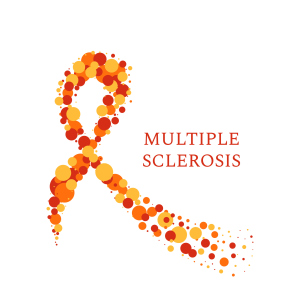
🧠 Understanding Multiple Sclerosis: A Guide for the Curious
Multiple sclerosis (MS) is a chronic condition that affects the central nervous system — that’s your brain and spinal cord. It’s considered an autoimmune disease, which means the body’s immune system mistakenly attacks its own healthy tissue. In MS, the target is myelin, the protective sheath that surrounds nerve fibers. Think of myelin like the insulation on electrical wires — when it’s damaged, signals between the brain and body get disrupted.
🔍 What Happens in MS?
-
Immune system misfire: The body attacks myelin, causing inflammation and scarring (called “sclerosis”).
- Signal disruption: Damaged nerves can’t transmit messages properly, leading to a wide range of symptoms.
- Progression: MS can be unpredictable. Some people have occasional flare-ups (relapsing-remitting MS), while others experience gradual worsening (progressive MS).
🧩 Common Symptoms
MS symptoms vary widely, but here are some of the most common:
- Fatigue that doesn’t improve with rest
- Numbness or tingling, often in the limbs
- Muscle weakness or spasms
- Vision problems, including blurred or double vision
- Difficulty with coordination or balance
- Cognitive changes like memory issues or slowed thinking
Not everyone experiences all of these, and symptoms can come and go.
👥 Who Gets MS?
- MS affects about 2.8 million people worldwide.
- It’s most commonly diagnosed in young adults, typically between ages 20 and 40.
- Women are about three times more likely to develop MS than men.
- The exact cause is unknown, but genetics, environmental factors, and viral infections (especially Epstein-Barr virus) may play a role.
💊 Is There a Cure?
There’s no cure yet, but treatment has come a long way:
-
Disease-modifying therapies (DMTs) can reduce relapses and slow progression.
- Rehabilitation and lifestyle changes (like exercise and stress management) help manage symptoms.
- New research is exploring early detection, neuroplasticity, and even blood tests that may predict MS years before symptoms appear.
🧠 Living with MS
MS is not a death sentence. Many people with MS live full, active lives. The key is early diagnosis, personalized treatment, and support — both medical and emotional.
Features
Family
Blog
Podcast (coming soon)
Multiple Sclerosis
"Can we pretend that airplanes In the night sky are like shooting stars? I could really use a wish right now wish right now, wish right now."
*Airplanes - BoB - 2010
Medical Updates
You will find the latest information about Multiple Sclerosis and other Neurological disorders
Family and Personal Updates



